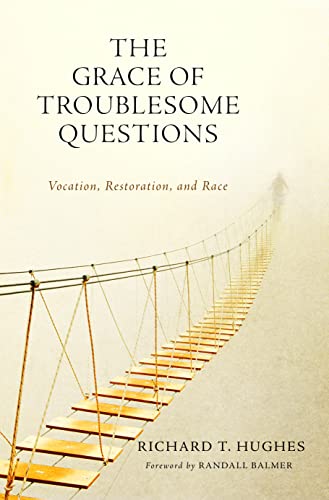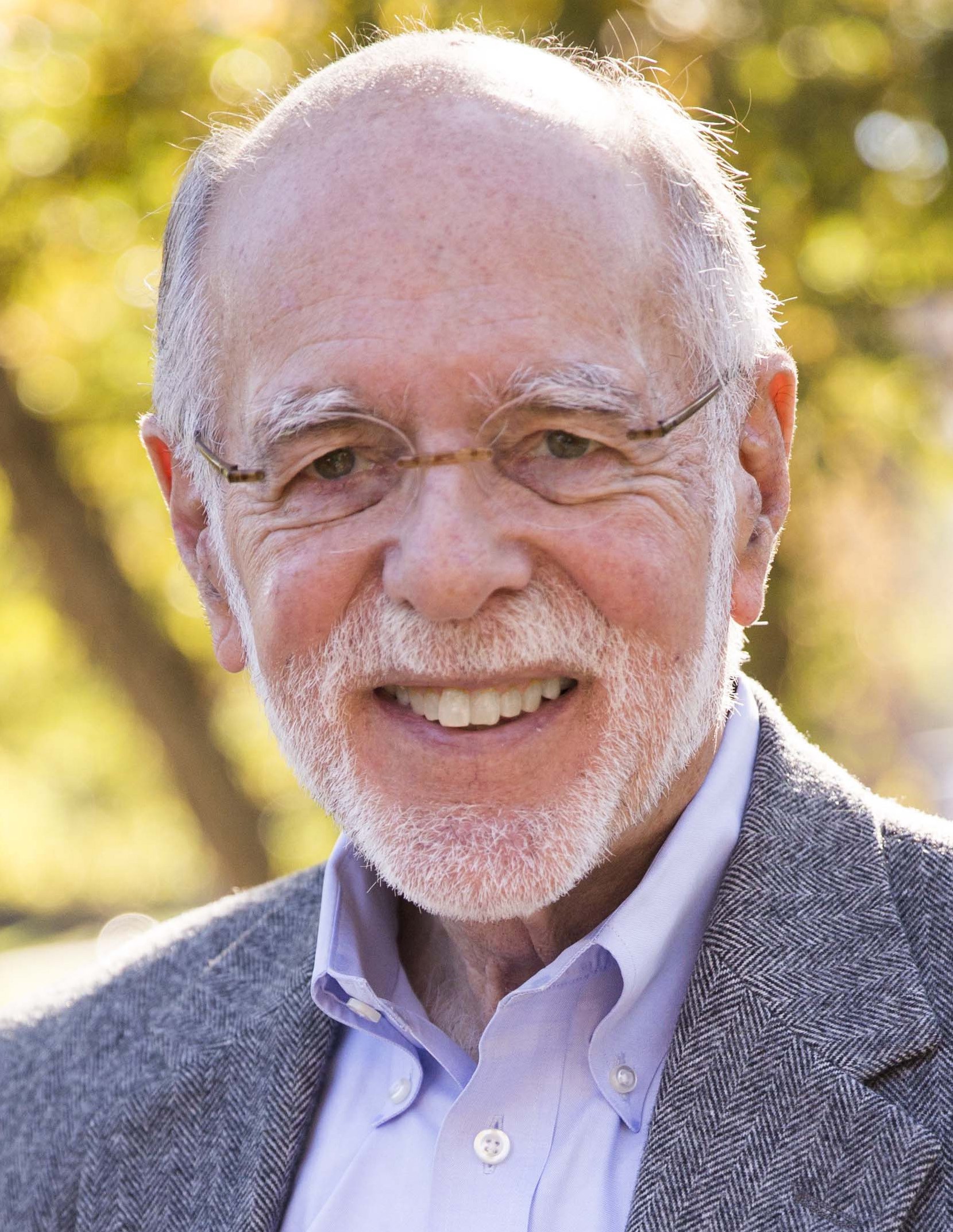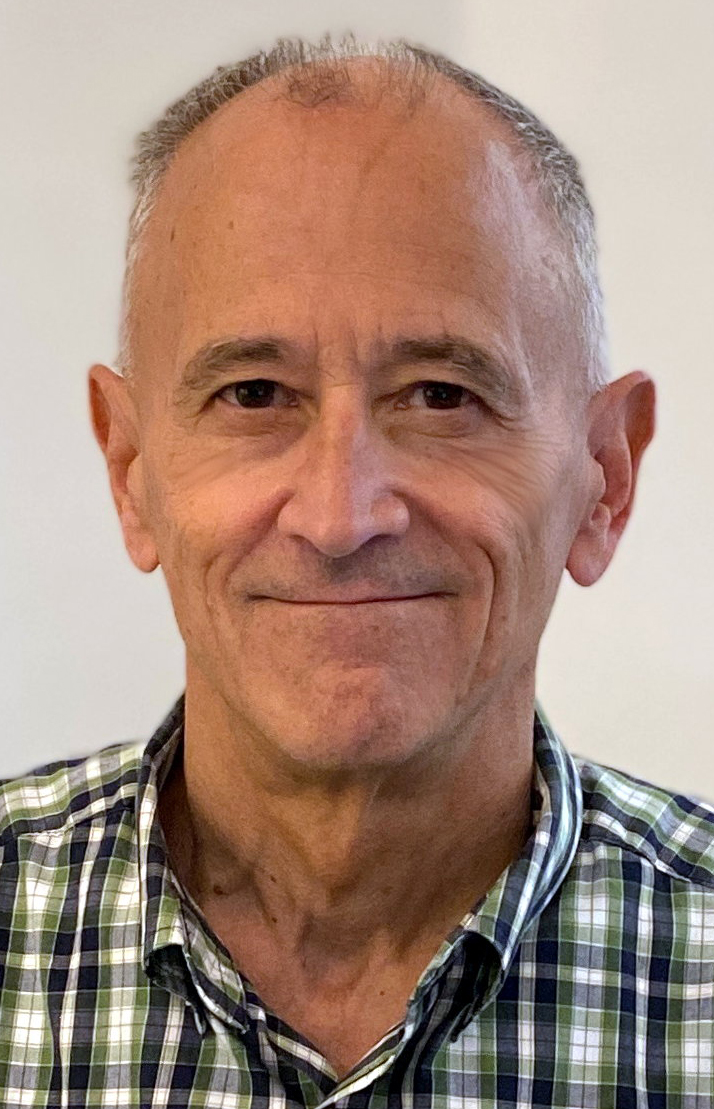In his latest book, The Grace of Troublesome Questions: Vocation, Restoration, and Race, historian Richard Hughes shares his intellectual and spiritual journey, inviting readers to consider how they treat their neighbors and where their allegiance as Christians lies.
Now in his late 70s, Hughes weaves essays, blog posts and a lecture from decades of scholarship into the story of his own vocation — his own discernment of what it meant to live as a disciple of Jesus. He calls his book an “intellectual memoir.”
 A personal story at the start frames what follows, including footnote-laden chapters exploring not only American church history but Reformation influences shaping it.
A personal story at the start frames what follows, including footnote-laden chapters exploring not only American church history but Reformation influences shaping it.
Hughes recalls his decision at age 16 to host his West Texas high school buddies — good Baptists, Methodists and Presbyterians — to watch evangelistic filmstrips. That the friends were from various churches is significant because Hughes grew up in Churches of Christ, a strongly sectarian fellowship during the author’s formative years.
The tradition developed out of a reform movement linked with 19th-century religious leaders Thomas and Alexander Campbell and Barton W. Stone. Early on, churches led by the Campbells belonged to Baptist associations in Pennsylvania and Ohio.
Hughes’ mom was supportive of her eager son but sensed a teachable moment.
“If you want to convert your friends to our church, that is entirely up to you,” she told him. “But if you discover that they are right but you are wrong, then you must be the one who is willing to make the change.”
“The encouragement to ‘see the world through someone else’s eyes,’ as Hughes frames it, gave him permission to tackle the hard questions that would emerge the rest of his life.”
The encouragement to “see the world through someone else’s eyes,” as Hughes frames it, gave him permission to tackle the hard questions that would emerge the rest of his life.
During his undergraduate years at Harding College in Arkansas, Hughes’ longing to know the truth about his church and its past stirred a calling to church history. He later would see that vocation as not merely academic but something he must anchor in God’s desire for a “life of solidarity with … the ‘least of these.'”
During graduate studies at Abilene Christian University in Texas, a book recommended by historian Everett Ferguson raised questions about a pillar of Hughes’ early beliefs: the divine imperative to lay aside human traditions — root of all Christian disunity — and recover the pristine practices of the New Testament church.
The Anabaptist View of the Church, which Ferguson suggested, introduced the future historian to a Christian tradition that, rather than restoring the worship and organization of the earliest Christian communities — as in his own fellowship — sought a return to the first believers’ nonviolent ethics and sense of discipleship.
Hughes found echoes of this ethic in his own tradition in reformer Stone’s “apocalyptic” worldview, in which the divine kingdom visible in the church would later appear in fullness. Stone emphasized “a radical sense of estrangement and separation from the world … and a keen allegiance to ‘the kingdom of God.'”
“For Hughes, evangelicals’ private, otherworldly understanding of salvation and their pursuit of power to politically impose the Christian faith can enable a blindness to injustice.”
The author contrasts Stone to American evangelicalism, a movement he sees as encroaching on the restorationist vision of his tradition. For Hughes, evangelicals’ private, otherworldly understanding of salvation and their pursuit of power to politically impose the Christian faith can enable a blindness to injustice.
“Stone … never sought to dominate the culture,” Hughes observes. “Instead, he consistently rejected the notion of a Christian America and even claimed that the kingdom of God … would finally subvert the United States along with all other political institutions.”

Richard T. Hughes
By reading the Bible through the lens of culture rather than culture through the lens of the Bible, Hughes argues, evangelicals “allow the American nation, its values and its dominant culture to take the place of the only reality to which, as Christians, they should pledge their allegiance: the biblical vision of the kingdom of God.”
This misplaced focus enables a malaise that becomes a key theme in the book: America’s struggle with racism, specifically the notion of white supremacy.
Hughes recalls a pivotal moment at a 2012 conference that changed the direction of his life and scholarship. At the meeting, he had spoken about Myths America Lives By, his 2004 book about five fundamental ideas that shape American identity.
After he talked, fellow panelist and scholar of African American Christianity James Noel leaned over. “You left out the most important of all the American myths,” Noel whispered. “White supremacy.”
Hughes was taken aback. But, like his mother had taught him, he paid attention. The result was a second edition of his book, the 2018 Myths America Lives By: White Supremacy and the Stories that Give Us Meaning.
Hughes concludes with some of the most tender autobiographical reflections of the volume. He tells how he met his wife, Jan, because Harding College required students to eat with the same people they randomly stood beside in the cafeteria line. “The truth is, I was madly in love,” he confesses.
He recalls visiting renowned historian and friend Sidney Mead just four months before Mead died. And he expresses deep gratitude for his Black friend and mentor, Charles Wayne Baxter, who taught him, “It’s all about relationships.”
The personal stories cap readers’ journey with Hughes during a lifetime devoted to difficult but authentic questions about who God calls Christians to be.
“There is only one passage in the entire biblical text that paints a panoramic view of both the final judgment and the meaning of the kingdom of God,” Hughes writes. “There, the King of the Universe gathers together the people of earth and divides the sheep from the goats. … The king is concerned about one thing — how we treat our neighbors.”

Ted Parks
Ted Parks is a freelance writer living in Nashville. He writes for The Christian Chronicle, a news monthly for Churches of Christ, and has published in other venues. A native of Chattanooga, Tenn., he moved to Nashville in 2004 after living 12 years in Southern California, where he taught at Pepperdine University.
Related articles:
Book to help kids with faith questions turns out to help parents too
Do I Stay Christian? and other questions to think twice about before asking | Opinion by Brett Younger


